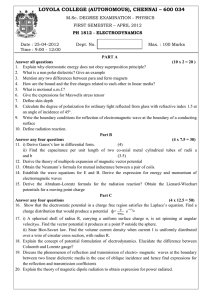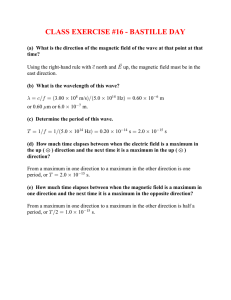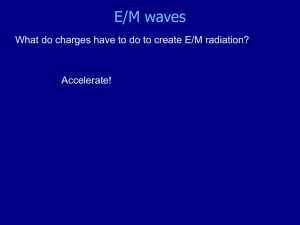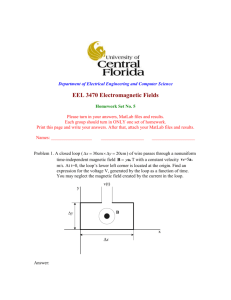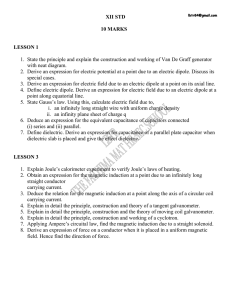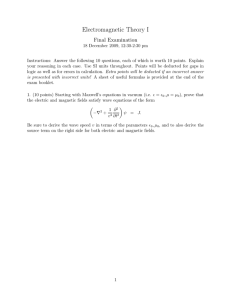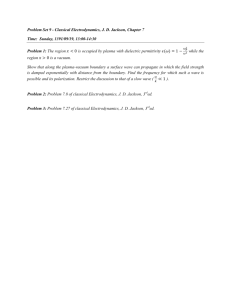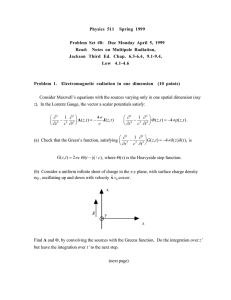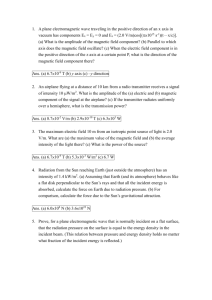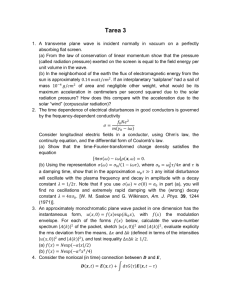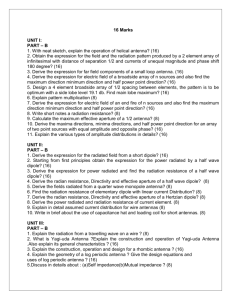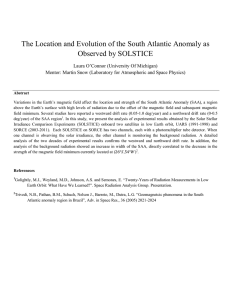PH 1818 - Loyola College
advertisement
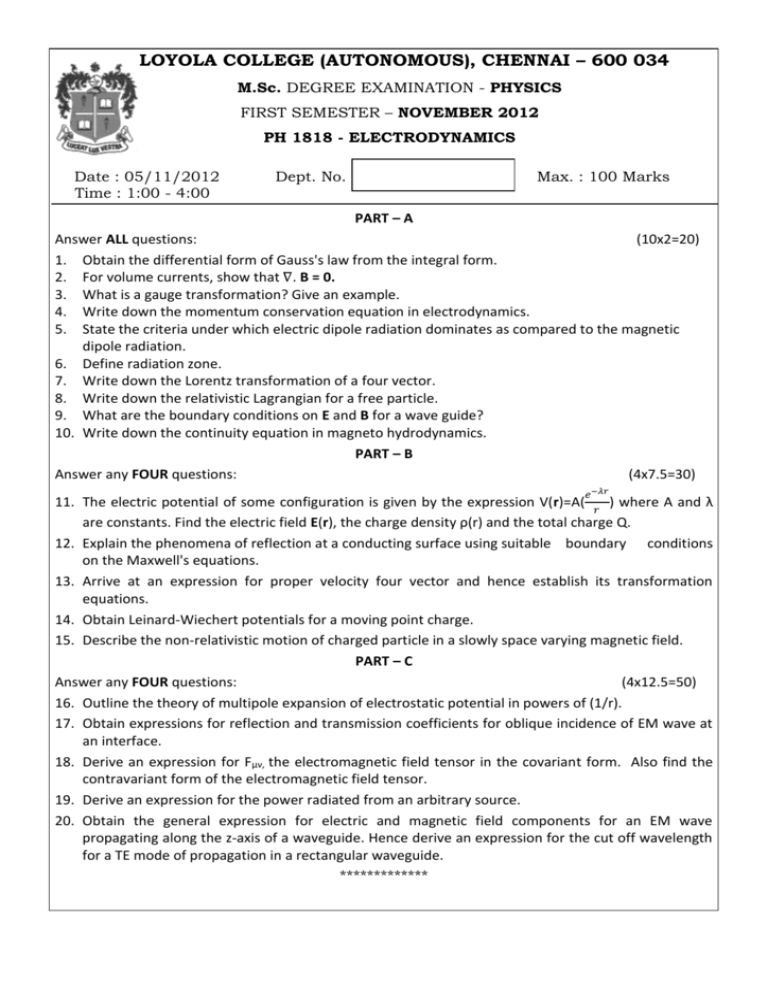
LOYOLA COLLEGE (AUTONOMOUS), CHENNAI – 600 034 M.Sc. DEGREE EXAMINATION - PHYSICS FIRST SEMESTER – NOVEMBER 2012 PH 1818 - ELECTRODYNAMICS Date : 05/11/2012 Time : 1:00 - 4:00 Dept. No. Max. : 100 Marks PART – A Answer ALL questions: (10x2=20) 1. Obtain the differential form of Gauss's law from the integral form. 2. For volume currents, show that ∇. B = 0. 3. What is a gauge transformation? Give an example. 4. Write down the momentum conservation equation in electrodynamics. 5. State the criteria under which electric dipole radiation dominates as compared to the magnetic dipole radiation. 6. Define radiation zone. 7. Write down the Lorentz transformation of a four vector. 8. Write down the relativistic Lagrangian for a free particle. 9. What are the boundary conditions on E and B for a wave guide? 10. Write down the continuity equation in magneto hydrodynamics. PART – B Answer any FOUR questions: (4x7.5=30) 𝑒 −𝜆𝑟 11. The electric potential of some configuration is given by the expression V(r)=A( 𝑟 ) where A and λ are constants. Find the electric field E(r), the charge density ρ(r) and the total charge Q. 12. Explain the phenomena of reflection at a conducting surface using suitable boundary conditions on the Maxwell's equations. 13. Arrive at an expression for proper velocity four vector and hence establish its transformation equations. 14. Obtain Leinard-Wiechert potentials for a moving point charge. 15. Describe the non-relativistic motion of charged particle in a slowly space varying magnetic field. PART – C Answer any FOUR questions: (4x12.5=50) 16. Outline the theory of multipole expansion of electrostatic potential in powers of (1/r). 17. Obtain expressions for reflection and transmission coefficients for oblique incidence of EM wave at an interface. 18. Derive an expression for Fμν, the electromagnetic field tensor in the covariant form. Also find the contravariant form of the electromagnetic field tensor. 19. Derive an expression for the power radiated from an arbitrary source. 20. Obtain the general expression for electric and magnetic field components for an EM wave propagating along the z-axis of a waveguide. Hence derive an expression for the cut off wavelength for a TE mode of propagation in a rectangular waveguide. *************
